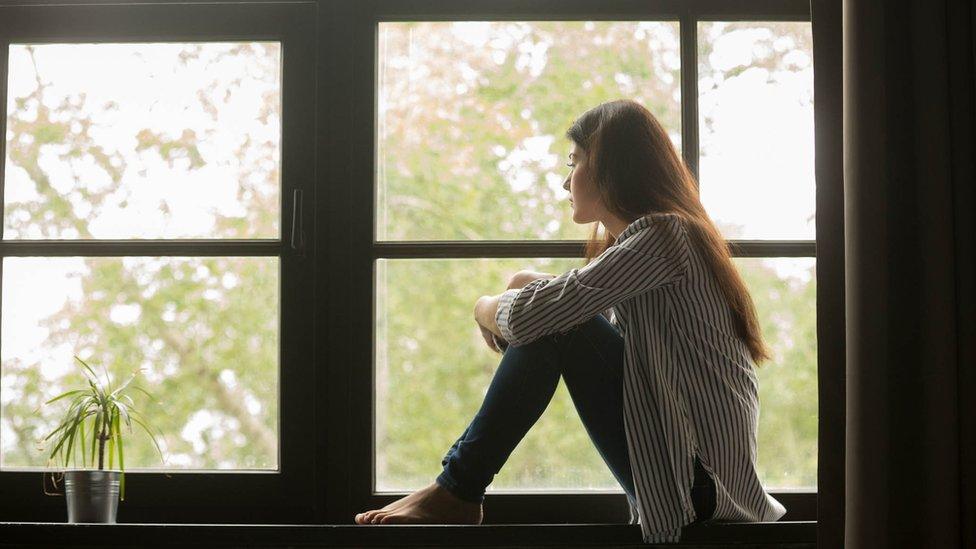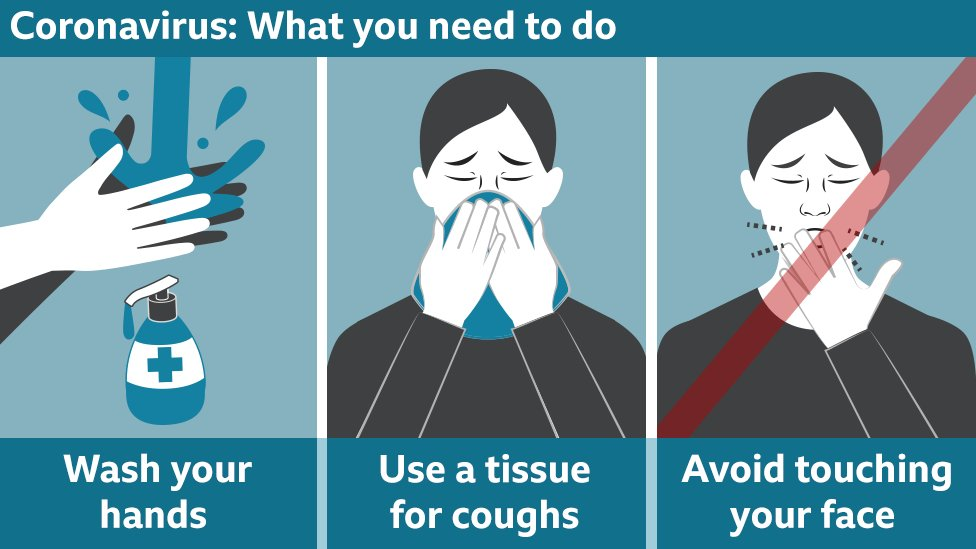Coronavirus: 'Anxiety rose after lockdown was introduced'
- Published

Psychologists at Ulster University (UU) are researching how measures taken to limit the spread of Covid-19 have been affecting mental health.
They are working with colleagues at the University of Sheffield on the joint study.
It involves a representative sample of 2,000 people across the UK.
Their initial findings suggest levels of anxiety and depressive symptoms rose after "lockdown" measures were introduced on 23 March.

EASY STEPS: How to keep safe
A SIMPLE GUIDE: What are the symptoms?
CONTAINMENT: What it means to self-isolate
HEALTH MYTHS: The fake advice you should ignore
MAPS AND CHARTS: Visual guide to the outbreak
VIDEO: The 20-second hand wash

However, the numbers of those who reported experiencing anxiety and depressive symptoms declined in subsequent days.
So far, 30 people of 689 who tested positive for Covid-19 in Northern Ireland have died.
Participants in the psychological survey answered questions about their current circumstances,, external their understanding of Covid-19, what they were doing to cope and their mental health.
Older respondents were less likely to show increased anxiety or depressive symptoms.
The study suggested that they were more likely to trust their neighbours and feel they belonged in their neighbourhood.
By contrast, younger people and those with children were more likely to show higher rates of anxiety or depressive symptoms.
That was also the case for those living in urban areas, with underlying health conditions or on lower incomes.

Participants said they trusted social media least to get accurate information about the coronavirus, while health professionals were most trusted.
About 30% admitted "increased purchasing" of tinned and dried foods and toilet roll.
'Nation is well informed'
The study also suggested that the majority of people were following public health advice about how to avoid spreading the virus.
For instance, 95% of respondents said they were washing their hands with soap and water more often.
Over three-quarters (76%) said they believed that "social distancing" would help reduce the risk of infection.
However, relatively few respondents (17%) said they were wearing face masks.
"The overall picture that emerges thus far is of a nation that is well informed about Covid-19, taking appropriate health-related actions and psychologically resilient," the authors concluded.
The academics involved in the study will contact the participants regularly to see how their experiences and mental health change as the pandemic progresses.
Prof Mark Shevlin, Prof Jamie Murphy and Dr Orla McBride from UU's School of Psychology are the Northern Ireland-based academics involved.
Other experts have provided reaction to the study's findings on the Science Media Centre website., external
Prof Elaine Fox of the University of Oxford said the survey was "timely" and that it showed there was a "good degree of resilience" in the population.
She said studies of this type were "very important to give us regular snap-shots of what is happening in the population as we move through this crisis".
Dr Andreas Reif from the Goethe University Frankfurt, though, said that the study was of "limited use".
"What we see is 'depressive symptoms', or worrying, but this is not 'depression' - depression usually does not come overnight," he said.
- Published1 April 2020

- Published1 April 2020
